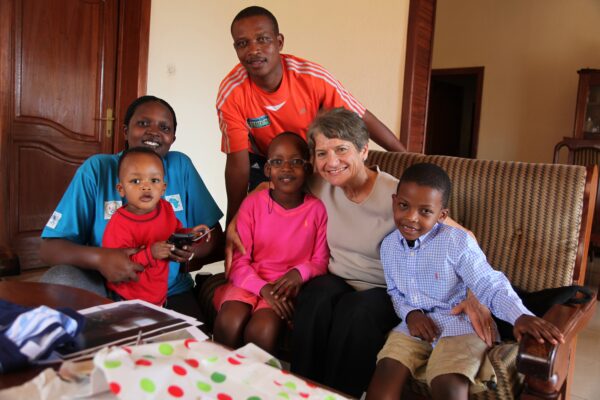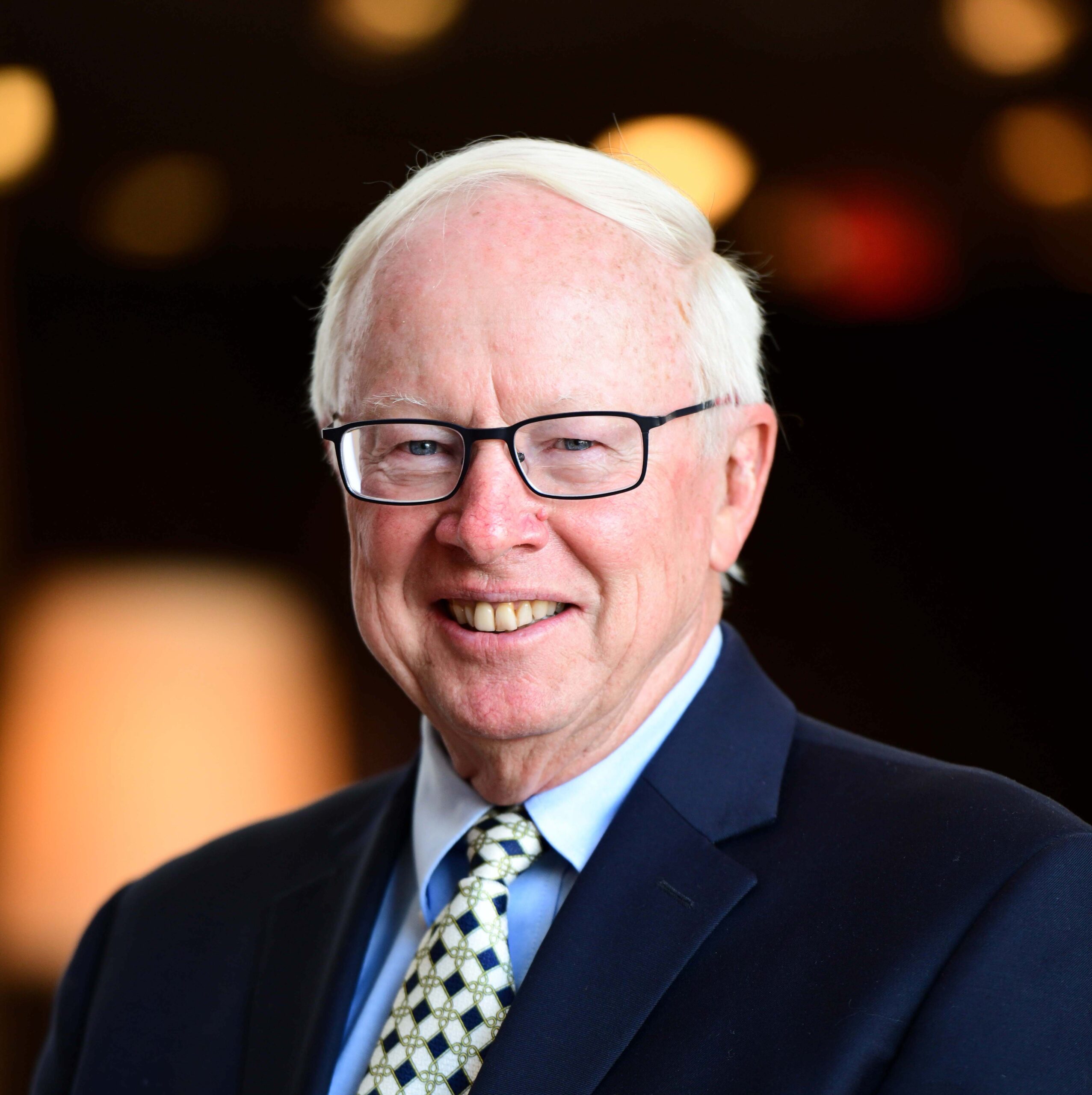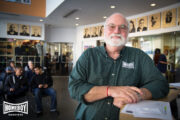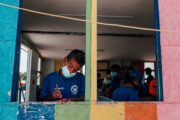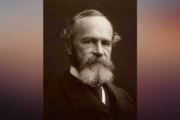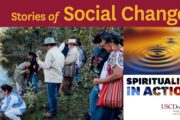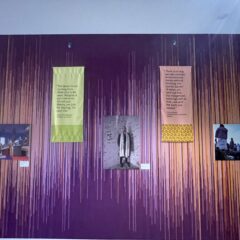(Photo: Lorna Miller with family friends in Kigali)
The slogan “Never Again” rings false to me, since a more appropriate refrain seems to be “Once Again,” especially given what happened in Darfur and is currently unfolding in South Sudan. Nevertheless, it is important to have hope and avoid cynicism—otherwise one is paralyzed by inaction.
April is Genocide and Human Rights Awareness Month, and it is this month in particular that I feel the pain of man’s inhumanity to man, having done oral history projects with survivors of both the first and last genocides of the 20th century.
In 2001, my wife and I traveled to Rwanda for the first time. We were asked to represent survivors of the Armenian genocide, since we had written a book on this subject and Lorna is a second-generation survivor of a calamity that claimed the lives of 1.5 million people in 1915. (Co
After Lorna told the story of her father—he and a sister were the only survivors out of a family of nine members—we were surrounded by a small group of Rwandan orphans who had formed an association to support one another as they cared for their younger siblings.
These orphans clearly identified with Lorna’s family history and they wanted to tell us their stories. At the end of our week-long stay in Rwanda, not only had we bonded with these kids but we had also visited a number of memorials around the country, including a school where they had laid out hundreds of skeletal remains on benches as a vivid testimony to the more than 800,000 people who were killed over a period of 100 days in 1994. There were babies as well as adults, many with skulls that had been bashed by clubs and others with evidence of machete cuts.
When Lorna and I returned home, we wondered what we could do beyond sending a check to some charity. One day we had the idea of writing an e-mail to Naphtal, the president of the orphan organization, asking whether they might want to document their experience by doing oral history testimonies with their members. We received an immediate affirmative response, and a few months later Lorna and I returned to Rwanda with tape recorders and other equipment to help them launch their project.
Six months after that, we received several thousand pages of transcripts from interviews that they had done, all translated into English from their native Kinyarwanda. The success of this project then led to the invitation to assist an association of widows who wanted to do the same thing, and once again we found funding to support their project. More recently, Lorna and I did a hundred videotaped interviews with survivors, both orphans and widows—all of which have been translated and transcribed.
During a sabbatical in 2011, Lorna and I coded more than 260 interviews. Painstakingly I have been working on a book that draws on these interviews and other experiences that we have had with survivors during 16 different trips to Rwanda. What was missing was the last chapter—the conclusion to a book that chronicles not only the events of the genocide but also the emotional trauma that followed and the ways in which survivors have attempted to reconcile with perpetrators.
On March 23 of this year we left for Rwanda, not knowing whether this would be our last trip to this small country in central Africa, but we knew that it would be important to attend the 20th commemoration of the genocide on April 7. We had also formed deep friendships with many people, including orphans who wrote us e-mails that always began with the salutation, “Dear Parents.” Our goal was to meet informally with “our kids,” as we called them, and also to spend time with the director of Solace Ministries, where we had done our video interviews. He insisted that we spend some time traveling around the country taking in the beauty of Rwanda, not simply its pain.
During these two weeks I was searching for the ending of the book. The first nine chapters were pretty depressing, even the chapter on healing. Perhaps half of the people were killed in churches, where they had gathered for shelter in 1994, sometimes under the supervision of priests who collaborated with the perpetrators. This betrayal created a crisis of faith for many people in an overwhelmingly Christian nation. Also, a large percentage of the women had been raped, often multiple times, and many had been infected with HIV, the AIDS virus. It was very common to see survivors with missing limbs or dramatic scars on their bodies and faces. Many survivors said that they continue to face problems with shelter, since destruction of homes was part of the Hutu program to drive Tutsis out of the country—if they could not be killed.
Nevertheless, in this Easter season there were signs of resurrection throughout the country, including among survivors. We did a long interview with Naphtal, the former president of the orphan association whom we first met in 2001. He was the sole survivor of his family and now has three beautiful children, including an eight-year-old daughter that he named “Arpi” after our daughter, who visited Rwanda some years ago. He liked the meaning of the name, which in Armenian is “the early morning rays of sunshine.” For Naphtal, marrying and having a family was a form of resurrection. He also told us in this interview that he had decided some years ago that the way to punish the killers of his family was to be a success, which he is today as he serves as the executive secretary of IBUKA, the umbrella organization in Rwanda for all survivor groups.
We also met with Francine, her husband and two-year-old child. On one of my trips to Rwanda I stayed in an Anglican guesthouse. Francine was the maid who cleaned my room. One afternoon I was having tea on the veranda, and I heard her singing and praying behind one of the buildings. I asked her what she was praying for when she returned to pick up my tray, and she said that she was praying that she could go to university. Through various means we paid for her tuition and now she works for a bank and supervises 20 employees. Without this intervention, she would still be a maid—which points to the untapped potential of many people who are working in menial jobs. (Continue reading below the slideshow.)
For three days we attended a conference at the Parliament building in Kigali, the capital city of Rwanda. In August of 1994 at the end of the genocide, the country was a failed state. Three-quarters of the population had been displaced, including many perpetrators, who had fled to neighboring countries. There was no court system, no functioning government offices, and nearly all foreigners had abandoned the country, including the U.N. peacekeepers.
Today, however, Rwanda has consistently been experiencing economic growth rates of 7-8 percent annually. Two-thirds of the elected officials are women—a higher percentage than any other country in the world. There is an explicit policy of “no corruption,” which is rigorously enforced. There is security on the streets; in fact, I feel safer walking at night in Kigali than in downtown Los Angeles. And many survivors are at some stage of healing from their trauma, although the pain of their loss will never be forgotten.
On April 7, Lorna and I attended the 20th commemoration at the football stadium in Kigali. Graciously, we were seated in the VIP section, right behind representatives from USC’s Shoah Foundation Institute. Youth had carried a torch around the country as part of the commemoration activities, and immediately prior to the stadium event President Paul Kagame lit an eternal flame at the Kigali Memorial Museum, where 250,000 bodies have been buried, many exhumed from various locations around the country. We all stood when the President, First Lady, U.N. Secretary-General Ban Ki-moon, the presidents of Uganda and the African Union, Tony Blair, Samantha Power (the U.S. Ambassador to the United Nations) and other dignitaries entered the stadium a few feet from where we were seated.
During the ceremony, a survivor gave his testimony, and throughout the stadium there were people who screamed or fainted and had to be escorted or carried out to waiting ambulances. The same thing had happened ten years before when we were at the stadium for an earlier commemoration. There was also a dramatic reenactment of the genocide, with hundreds of young people participating on the stage. More survivors were carried out of the stadium.
But there was also a very upbeat message from many of the speakers, including the President of Uganda, who stated that Africa was no longer suffering from the Colonialists—there was a new Africa rising. President Kagame repeated this theme, saying, “Africans are no longer resigned to being hostage to the world’s low expectations. We listen to and respect the views of others. But ultimately we have got to be responsible for ourselves.”
He then listed some of the accomplishments of the last 20 years. Rwandans are united; there are no distinctions between Hutus and Tutsis, they are one people. Rwanda has extended health care to all their citizens. They appoint public servants based on merit, without discrimination. They censure any official, regardless of rank, if he or she abuses power or engages in corruption. Kagame ended his speech saying, “Twenty years ago, Rwanda had no future, only a past.” But things have changed in two decades. There is an incredible vitality to Rwanda. It has frequently been referred to as the “Singapore of Africa.”
During the two weeks Lorna and I were in Rwanda this spring, we began to have another vision of the future of survivors. In our interviews, we had focused on the past, which is very tragic and depressing. And some survivors are indeed imprisoned by their past—and for understandable reasons. But many, like Naphtal, are having their vengeance on the perpetrators. They are succeeding. They are building new lives.
Donald E. Miller is the co-founder of the USC Center for Religion and Civic Culture.
